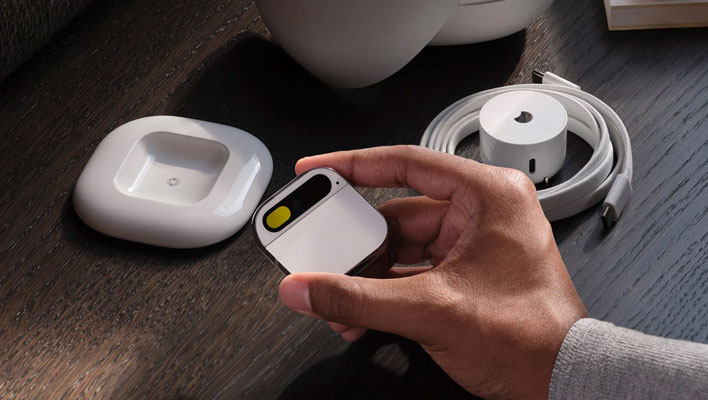Several reviews of
Humane's wearable Ai Pin are now live and, much to the dismay of Ken Kocienda, head of product engineering at Humane, they're collectively less than glowing. In response, Kocienda took to X (formerly Twitter) to address what he insinuated were a bunch of "hot takes," chalking up the negative impressions to the way things sometimes go for a 1.0 product release.
At the same time, he doubled down on Humane's believe that the Ai Pin has the potential to change the landscape.
"I feel that today’s social media landscape encourages hot takes… and the spicier the better! Indeed, it’s so easy to find people online who are willing to jump on the skepticism bandwagon to gape at the same things you’re pointing at and poke holes in every little detail," Kocienda commented. "I get it. And still. Computers will continue to change and get substantially better. The way we use them will change. Ai will be a big part of driving this change. Everyone will be fine with it. The new normal will become normal."
Part of the problem stems from confusion over what exactly the Ai Pin,
powered by Snapdragon, is supposed to be exactly. On Humane's website, it describes the gadget as the first multi-modal devices that is both wearable and easy to use. The pitch is that it can act as an assistant or even a "second brain," helping to make phone calls, send text messages, look up information, and so forth.
The problem is, smartphones already do all of that and more. AI assistants abound, whether its Siri or Google Assistant, let along the emergence of AI chatbots like Copilot, ChatGPT, Gemini, and others that have upped the ante. Predictably, some of the early reviews are lukewarm on the device—Engadget says its a "solution to none of technology's problems," while other attention-grabbing headlines have called it "too clunky, too limited" (Wired) and concluded "the post-smartphone future isn't here yet" (The Verge). In its review, The Washington Post said it's a "promising mess you don't need yet."
In his lengthy response on X/Twitter, Kocienda defended the Ai Pin's form factor and operating system as both being "wonderful," while acknowledging "it's not magic," saying users should "expect the same kind of ups and downs as your other tech." In other words, it needs time to mature, as well as create new habits for users who are accustomed to the status quo. And he has a point—the smartphone has become a big part of daily life.
At the same time, he admits the Ai Pin can be frustrating, though he caveats that so can other devices.
"I feel like there’s an apprehension about jumping in and finding how the Ai Pin might fit into your life. This is understandable. Is the Ai Pin frustrating sometimes? Yes. Is my laptop and smartphone frustrating sometimes? Yes! There is no perfect product," Kocienda writes.
It's worth noting that Kocienda has been in this position before. As he notes in his post, he's worked on several version 1.0 products, including the first Apple iPhone as well as its autocorrecting keyboard. To the latter, he says there was skepticism at the time about its viability.
"There was considerable doubt about the very concept of the touchscreen keyboard. And yet, when I built the tech, I felt that it was learnable," Kocienda says. And of course we know how that turned out—that's not a standard feature on smartphones.
Whether the Ai Pin can be revolutionary, that remains to be seen. This author is skeptical—it feels like the Ai Pin will have a bear of time replacing the smartphone, which it what it would need to do (versus supplementing smartphones) in order to be viable. Time will tell.



